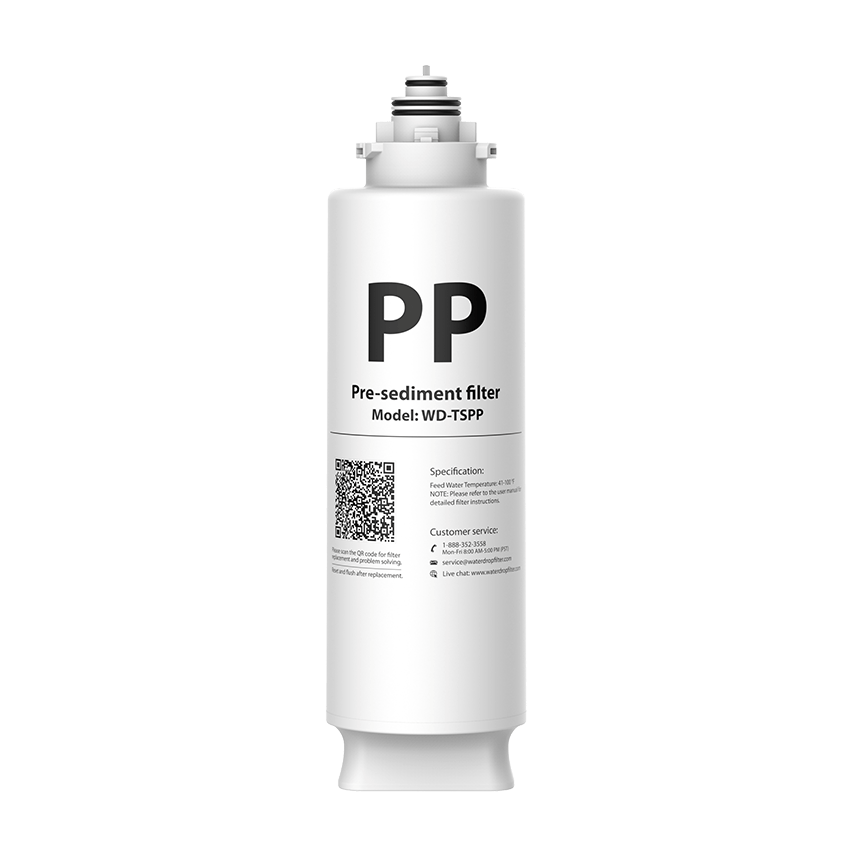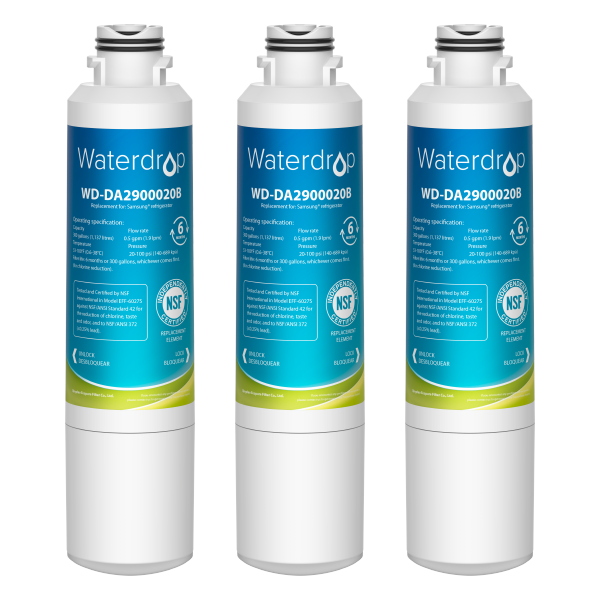What Is Soft Water? A Complete Guide for Australians
by Dr. Jonathan Doyle - Updated February 18, 2025
Soft water is an essential concept that many people often overlook, yet it plays a significant role in our daily lives. Whether you are looking to improve
your water quality at home or simply want to know more about the benefits of soft water, this comprehensive guide will provide you with all the information
you need. In this article, we’ll explore what soft water is, how it differs from hard water, and why it’s beneficial for homes in Australia.
Understanding Soft Water: What Is It?
Soft water is water that contains low concentrations of dissolved minerals, specifically calcium and magnesium. These minerals are often found in
hard water , which can lead to
various issues such as scaling in pipes, reduced efficiency of appliances, and dry skin. Soft water, on the other hand, is easier on both your plumbing
systems and your skin, offering a range of benefits that we’ll explore further.
How Is Water Softened?
Water can be softened using a water softener system. This system typically uses an ion-exchange process, where calcium and magnesium ions are swapped with
sodium or potassium ions. The result is water that is “soft,” meaning it contains fewer dissolved minerals. Soft water is ideal for areas with hard water,
which can be common in many parts of Australia.

For example, regions like Sydney and Melbourne often deal with hard water, which is high in minerals due to the natural geology of the area. Softening the
water in these areas can have significant benefits for both households and businesses.
Hard Water vs. Soft Water: What’s the Difference?
The primary difference between hard and soft water is the amount of dissolved calcium and magnesium. Hard water has high levels of these minerals, while
soft water has very low concentrations. Understanding this difference is key to understanding why soft water is better for certain applications.
Hard Water
Hard water is commonly found in areas where groundwater passes through mineral-rich rocks, such as limestone. These minerals dissolve into the water, making
it “hard.” Hard water can cause several problems:
- Scale Buildup: Hard water leaves mineral deposits on appliances, plumbing pipes, and fixtures. Over time, this can lead to costly repairs and replacements.
- Soap Scum: Soap doesn’t dissolve well in hard water, often leaving a residue that can build up on skin, hair, and bathroom surfaces.
- Dry Skin and Hair: The minerals in hard water can strip away natural oils from the skin and hair, leaving them dry and irritated.
- Appliance Damage: Hard water can reduce the lifespan of appliances like dishwashers, washing machines, and water heaters.

Soft Water
Soft water, in contrast, has a much lower mineral content, which brings about several benefits:
- Fewer Mineral Deposits: Soft water does not cause scale buildup in your plumbing system or appliances, extending their lifespan.
- Better Soap Lather: With fewer minerals in the water, soap lathers more effectively, allowing for a better cleaning experience.
- Gentler on Skin and Hair: Soft water helps retain moisture in your skin and hair, preventing dryness and irritation.
- Cleaner Clothes: Clothes washed in soft water tend to feel softer and last longer because they aren’t exposed to harsh minerals.
Benefits of Soft Water for Australian Households
Australia is a diverse country with a variety of water quality conditions. In cities like Perth, Sydney, and Brisbane, many residents experience hard water
due to the local water sources. This can lead to increased energy bills, maintenance costs, and skin irritation. Here are some of the key benefits of
switching to soft water:
Improved Appliance Efficiency and Longevity
One of the primary benefits of soft water is that it helps improve the efficiency of household appliances. Without the buildup of scale, your washing
machine, dishwasher, and hot water system will work more efficiently. This leads to:
- Lower energy bills: Appliances with less scale buildup require less energy to operate.
- Longer appliance lifespan: Soft water reduces wear and tear on machines, prolonging their life.
Softer, Cleaner Skin and Hair
For Australians who live in areas with hard water, switching to soft water can provide a noticeable difference in skin and hair health. Soft water helps
preserve natural oils, preventing the dryness and irritation commonly caused by hard water. This means:
- Fewer skin problems: Soft water can help reduce conditions like eczema , acne, and dry patches.
- Healthier hair: Soft water makes it easier to rinse out shampoo and conditioner, leaving hair softer and shinier.

No Soap Scum
Hard water leaves soap scum on your dishes, shower walls, and skin. Soft water eliminates this issue, allowing soap to lather better and rinse away more
thoroughly. This means:
- Cleaner dishes and surfaces: Without soap scum buildup, your dishes and bathroom surfaces will stay cleaner.
- Less time spent cleaning: Soft water makes it easier to maintain cleanliness around the house.
Softer Laundry
Soft water can also improve the softness and longevity of your clothes. When you wash clothes in soft water, detergents are more effective, and mineral
buildup doesn’t damage fabrics. The result is:
- Brighter, softer clothes: Clothes washed in soft water come out cleaner and softer.
- Longer-lasting fabrics: Soft water prevents the buildup of minerals that can cause wear and tear on your clothing.

Reduced Plumbing Issues
Hard water can lead to clogged pipes and reduced water flow due to mineral deposits. With soft water, this issue is significantly reduced. This means:
- Fewer pipe blockages: Soft water helps keep your plumbing system clear of mineral buildup.
- Lower maintenance costs: Without the need for regular pipe cleaning or appliance repairs, your household maintenance costs are lower.
How to Get Soft Water in Australia?
If you’re living in an area with hard water, you may want to consider installing a water softener. Here are a few options:
Ion Exchange Water Softeners
These are the most common type of water softener. They use a resin to exchange calcium and magnesium ions with sodium or potassium ions. Ion exchange
systems are widely available in Australia and are easy to install.
Reverse Osmosis Systems
Soft water is water that has been treated to remove minerals like calcium and magnesium, which cause hardness. It provides numerous benefits for Australian
households, including preventing scale buildup in pipes and appliances, and improving the efficiency of soaps and detergents.
For the best water quality at home, a
reverse osmosis (RO) system is highly recommended.
RO filtration is a superior method for purifying water, effectively removing impurities like heavy metals, chlorine, and bacteria while retaining essential
minerals. By incorporating a RO system, Australian homeowners can enjoy clean, soft, and safe drinking water, free from contaminants. It’s the ideal choice
for those seeking reliable, long-term water filtration.
Conclusion: Should You Switch to Soft Water?
If you live in an area with hard water, switching to soft water can bring numerous benefits. From improving the efficiency of your appliances to keeping
your skin and hair healthy, soft water provides a better overall experience. While it may require an initial investment in a water softener, the long-term
savings in maintenance costs and the added comfort of soft water make it a smart choice for many Australian households.
Contaminants Detected in Fruitland Water Special Service District
30
Contaminants
EXCEED EWG HEALTH GUIDELINES
EXCEED EWG HEALTH GUIDELINES
30 Total Contaminants in Your Water
Water Provider
Fruitland Water Special Service DistrictPopulation Affected
120,000Water Source
Ground waterExceeds Guidelines
Others Detected









